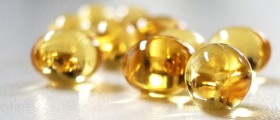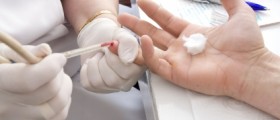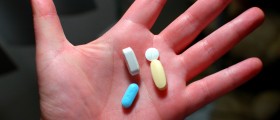
What is Alpha lipoic acid?
Alpha lipoic acid is a very potent type of antioxidant which is commonly made by the human body. It is present in every single cell of the human body because it is one of the main factors in the transformation of glucose into energy. It is very efficient in fighting off the free radicals and reducing the amount and severity of damage they cause inside the human body. For those who do not know, free radicals are actually certain types of waste products which get created in the body when the food gets transformed into energy. They are known for being very harmful as they are held responsible for various different sorts of negative chemical reactions. These reactions tend to damage all the cells in the human body and they make it very hard to fight off various kinds of infections. The free radicals are also known for causing significant damage to tissues and organs as well. Most antioxidants are either water soluble or fat soluble. One of the most common water soluble antioxidants in vitamin C, while the most commonly used fat soluble antioxidant is vitamin E. Alpha lipoic acid is quite peculiar as it is soluble in both water and fat so it can work its way through the body and provide its various parts with powerful health benefits. Once the antioxidants attack the free radicals, they usually get used up, but the alpha lipoic acid has this unique ability to regenerate those used up antioxidants and reactivate them again. Once thealpha lipoic acid gets into the cells of the human body it gets changed into the dihydrolipoic acid. It is often the case that the alpha lipoic acid gets confused with alpha linolenic acid. This other type of acid is an omega 3 fatty acid and is known for being very efficient in improving the overall health of the heart. The main reason for such confusion between two similar types of acid is that they are both often abbreviated as ALA. In order to avoid those confusions, alpha lipoic acid is sometimes referred to as lipoic acid.
Where is alpha lipoic acid used?
According to numerous scientific studies alpha lipoic acid can be used for various medicinal purposes. A large number of such studies have shown that alpha lipoic acid can be of great help in lowering the levels of sugar in the blood. There are a number of people who suffer from diabetic peripheral neuropathy. This medical condition is triggered by damage to the nerves and it is characterized by numbness in the legs, numbness in the arms, tingling sensations, itching sensations, burning sensations and painful sensations. Since alpha lipoic acid may come in very handy when it comes to killing off all the harmful free radicals, it is very helpful for those who suffer from diabetic peripheral neuropathy. For numerous years it has been one of the most successful treatment options for those who suffer from another medical condition called peripheral neuropathy. In most cases it was administered intravenously. If taken orally, alpha lipoic acid does not provide such results, and the number of scientific studies is simply not sufficient yet. Another problem with such studies was that most of them were simply poorly designed. There is another diabetes related medical condition which can be treated by alpha lipoic acid and that is autonomic neuropathy. It is characterized by damage to the nerves of certain internal organs of the human body. Alpha lipoic acid is also very efficient in protecting the brain and nerve tissue. It is of utmost importance in enhancing the overall functioning of the brain and preventing it from suffering a stroke. According to a small number of scientific studies, the alpha lipoic acid may also be very helpful in some cases of glaucoma.
Additional Information
All healthy human bodies produce sufficient amounts of alpha lipoic acid on their own. Other than that, alpha lipoic acid can also be found in red meat, organ meats and different types of yeast. Alpha lipoic acid can also be purchased in the form of supplements, usually as capsules. It can also be administered in an injection. One should notice that alpha lipoic acid is not recommended for pediatric use. As is the case with most substances known to man and intended for some sort of medicinal use, alpha lipoic acid may also sometimes be associated with certain types of unwanted side effects. It may also sometimes interact with certain types of medications. Side effects only occur in rare cases and they mostly include skin rash and sometimes even lowered levels of sugar in the blood. Those who suffer from vitamin B1 deficiency should not take alpha lipoic acid. Interactions of alpha lipoic acid usually involve medications for diabetes, thyroid medications and chemotherapymedications.

















Your thoughts on this
Loading...